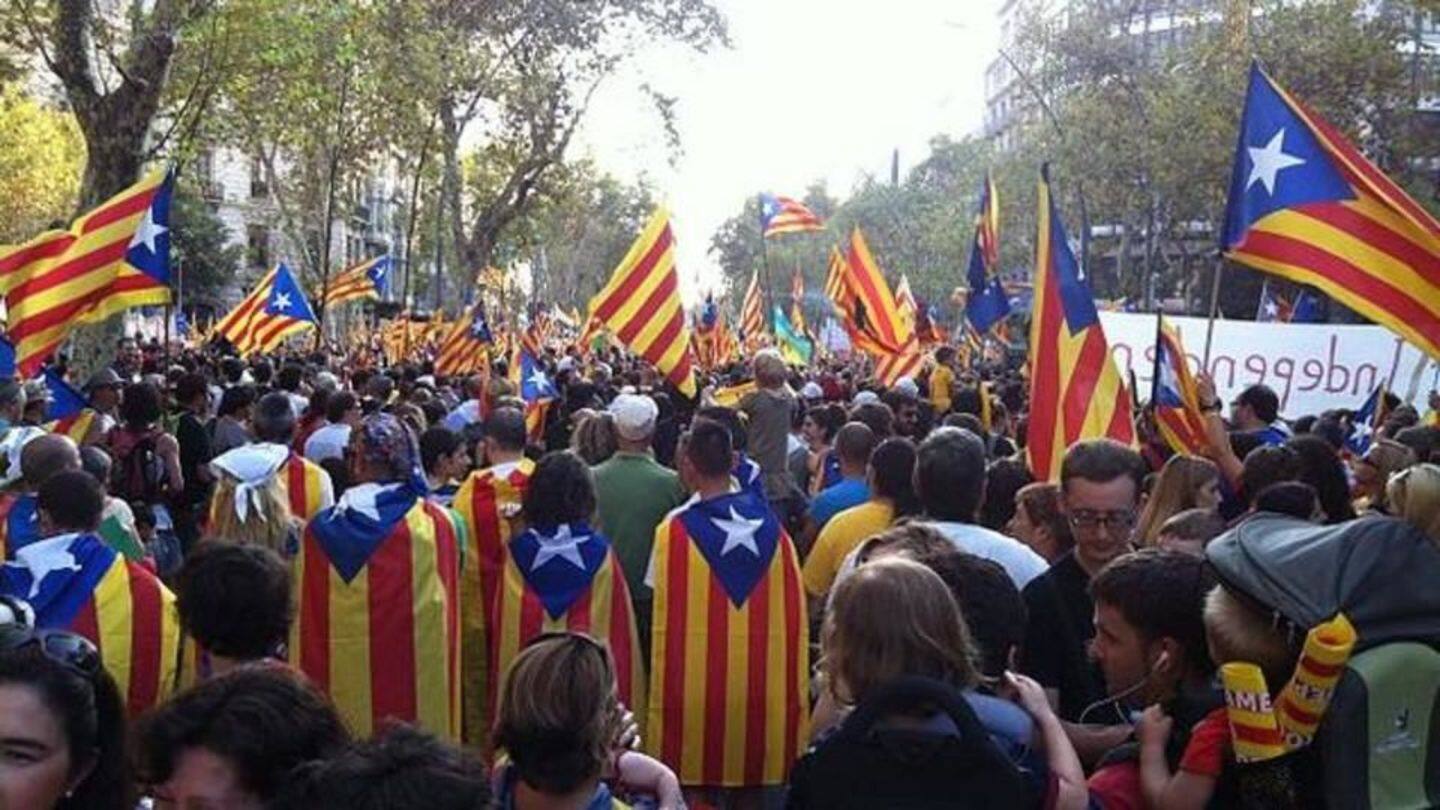
#CatalanCrisis deepens, Spain to remove leaders, take control of Catalonia
What's the story
As sentiments surrounding Catalonia's independence from Spain run high, Spanish PM Mariano Rajoy has put forward plans to conduct elections in the region. However, he stopped short of dissolving the Catalan parliament. This happened as large crowds are protesting Madrid's plans to impose direct rule on them. In response, Catalan parliament speaker termed the measures "a de facto coup d' etat." Here's more.
11 Oct 2017
Catalonia declares independence, puts it on hold
On 11 October, the Catalan Parliament signed a declaration of independence in a session eagerly watched by the whole world. Catalan President Carles Puigdemont said that the declaration will not be implemented for several weeks, allowing time for talks with the Spanish government, which has dismissed the independence declaration. Madrid had been stepping up pressure on Catalonia after it recently held a disputed referendum.
Background
Catalan referendum: What has happened so far?
Catalan leaders held a referendum in defiance of Madrid to ascertain whether its population backed independence from Spain. 90% of 2.2 million voters, who amounted to 40% of Catalonia's population backed independence. Madrid deployed its police forces to forcibly prevent voting. The crackdown left 900 people injured and significantly angered Catalans. Numerous anti-Spain protests erupted afterward, with entities including FC Barcelona backing Catalan independence.
20 Oct 2017
Catalan independence: Madrid moves to suspend the region's autonomy
On October 20, Madrid gave an ultimatum to Catalan pro-independence leaders to withdraw the independence declaration or be faced with measures taken under Article 155 of the Spanish Constitution. These measures may purportedly range from suspending the region's autonomy to calling for fresh elections. Raising the stakes on its side, Catalan leaders stated that Spanish "repression" would push them towards implementing the independence declaration.
Details
What does Spain plan to do?
Madrid may continue exerting pressure on Catalonia through various means. Under Article 155, Madrid plans to impose direct rule on Catalonia. While the provision mandates for elections to be held within 6 months from invoking it, PM Rajoy states that it is imperative for the vote to be held sooner. Reports also indicate that Spain is taking control of the Catalan police and media.
Catalonia responds
How have Catalan leaders responded?
Speaker of the Catalan Parliament Carme Forcadell accused Madrid of trying to terminate a "democratically-elected government." Ada Colau, Barcelona Mayor termed Spain's schemes "a serious attack on rights and freedoms." Barcelona FC President, Josep Maria Bartomeu stated that the club stood by "Catalan democratic institutions chosen by its people." Several of them called for peaceful protests and stressed on dialogue as a way forward.
Way forward
What next?
Article 155 has never been invoked before. Triggering the provision hence puts Madrid in a difficult position. It comes as a relief to people who don't support Catalan independence. While a show of authority on Catalonia is imperative at the moment, this could strengthen the case for Catalan independence. Moreover, Madrid will have to deal with a stronger independence movement in future.